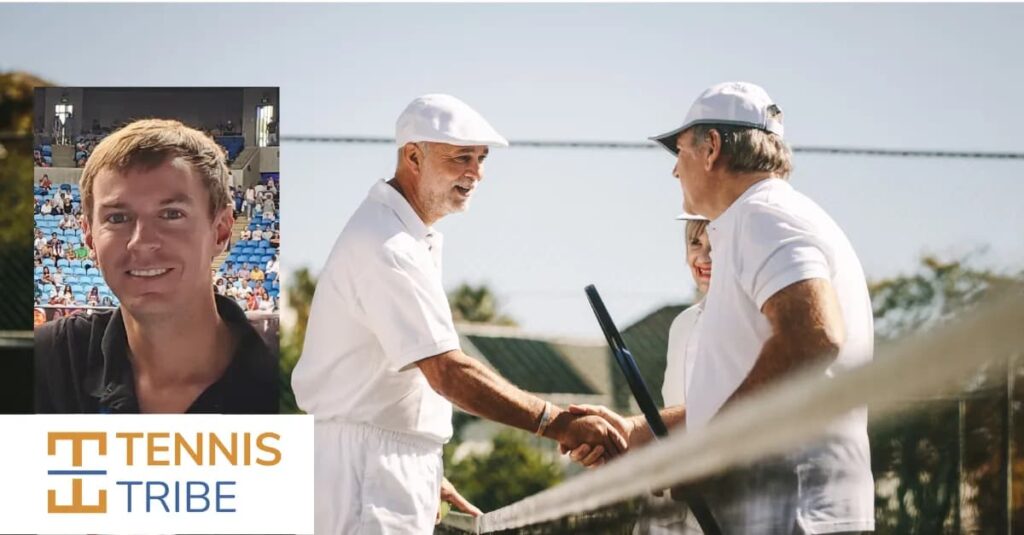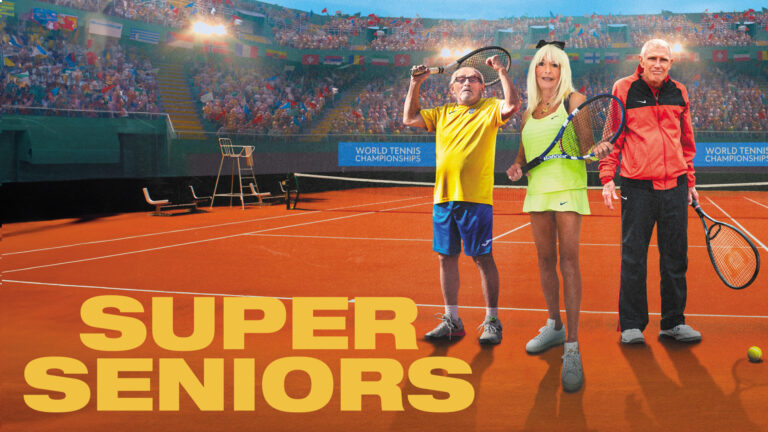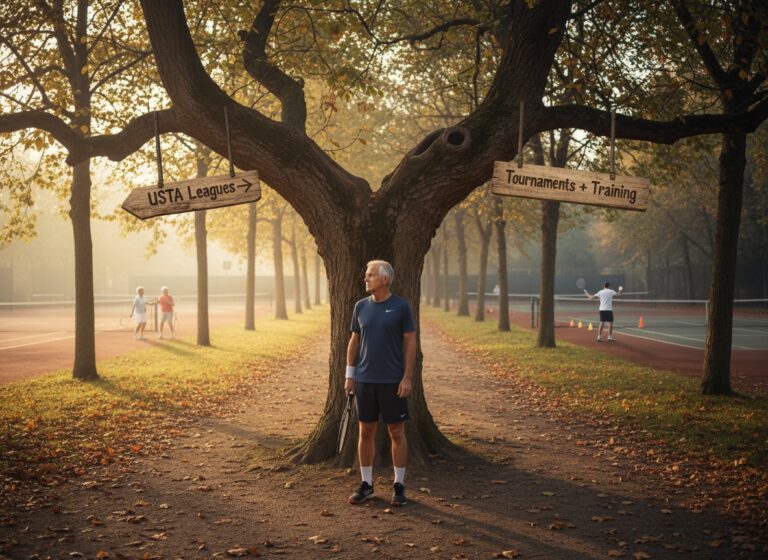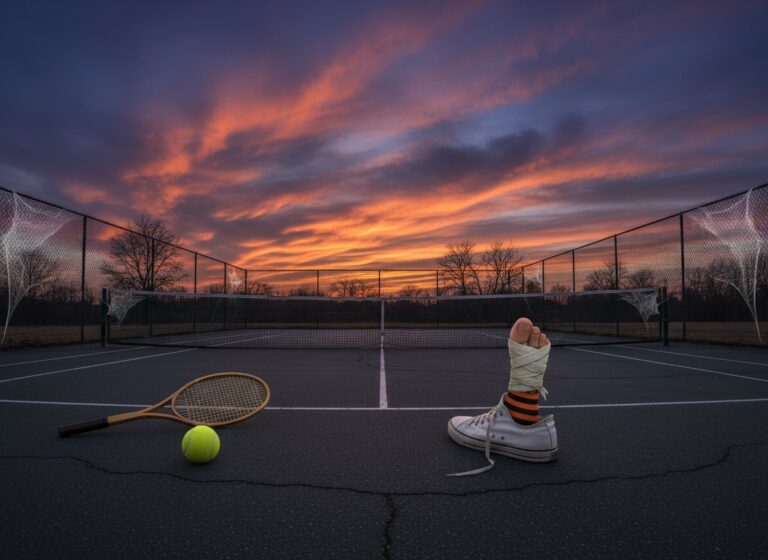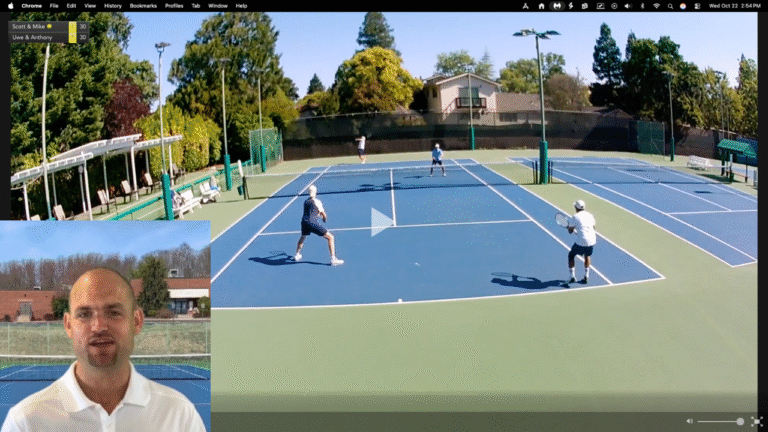Switching things up this week, I’m stepping away from the laughs to bring you something a bit more insightful—tips that can actually help improve your game. I recently had a conversation with Will Boucek, the mastermind behind The Tennis Tribe and host of the Doubles Only Podcast. Known for his sharp tennis strategies, Will shared some game-changing advice that’s perfect for doubles players, but just as applicable for singles. Here are 9 takeaways to help you think smarter, play better, and elevate your tennis to the next level:
1. Scout Like the Pros (Even at the Club Level)
Scouting isn’t just for elite players. Club players can learn a lot by watching upcoming opponents—even briefly. Focus on:
- Serve tendencies (e.g., slice wide in deuce court).
- Return patterns (lob vs. drive, forehand vs. backhand errors).
- Net player positioning and movement.
2. Start With Just 3 Key Observations
Will suggests beginners in scouting focus on:
- Favorite serve placement.
- Net player habits (how close or far they play).
- Return tendencies—especially where they hit and how often.
3. It’s About Making Them Uncomfortable
Tennis is a game of errors. Will stresses that it’s better to disrupt your opponent than to aim for “perfect” strokes. Club players often obsess over playing well instead of forcing opponents to play poorly.
4. Don’t Just Watch the Ball—Study the Opponent
Will coaches high school teams and keeps his eyes on the opponents during matches. He recommends doing the same during changeovers or from the sideline. Know your team’s strengths, but watch the opponent’s weaknesses.
5. Adjust Early—Don’t Wait Until It’s Too Late
Many players lose a close set (like 4-6) and assume they just need to “play better.” Will advises the opposite: experiment early. Try new tactics and formations right away. Most club players don’t adjust enough.
6. Journal After Matches—Like the Pros Do
Journaling post-match helps solidify tactical learning and mental reflection. Will references top WTA doubles player Demi Schuurs, who journals after every match. Club players should write:
- What worked/what didn’t.
- Opponent tendencies.
- 1–3 tactical tweaks for serve, return, and general rally play.
7. Understand Why You Lost a Point
Too often players misdiagnose their mistakes. It’s not always the missed volley—it might be the decision two shots earlier. Will encourages players to look at second- and third-order consequences, not just the final error.
8. Strategy Beats Technique at the Club Level
You’re probably not adding 10 mph to your serve at age 50—but you can improve your positioning, movement, and shot selection. Strategy upgrades have faster returns for the average club player.
9. Train Your Observation Muscle
Watching women’s doubles or local matches can train your eye to spot patterns and weaknesses. Start off-court if it’s hard to analyze during your own match. This builds the habit of seeing opportunities in real time.
Parting Shots:
Putting Will Boucek’s insights into action can truly transform your approach to tennis. Whether it’s scouting your opponents like a pro, journaling after matches to solidify lessons learned, or focusing on strategy over technique, these tips give us practical ways to level up our game—both mentally and tactically. The beauty of Will’s advice is that it’s not just for tournament-level players; it’s for anyone who wants to improve, whether you’re battling in doubles with a partner or grinding it out in singles.
If these tips resonate with you, take a moment to reflect and start applying them in your next match. And don’t keep this goldmine of advice to yourself—please like, comment, and share this post with your doubles partner or tennis friends. Let’s all work smarter (not just harder) on the court!
Looking for more game-changing insights? Head over to TheTennisTribe.com and subscribe to Will Boucek’s newsletter. You’ll get access to cheat sheets on serving and returning, mental strategies, and tons of exclusive content to level up your game. And don’t forget to add The Doubles Only Podcast to your playlist! Check it out at The Doubles Only Podcast or subscribe on your favorite podcast platform. Your doubles game will thank you!


